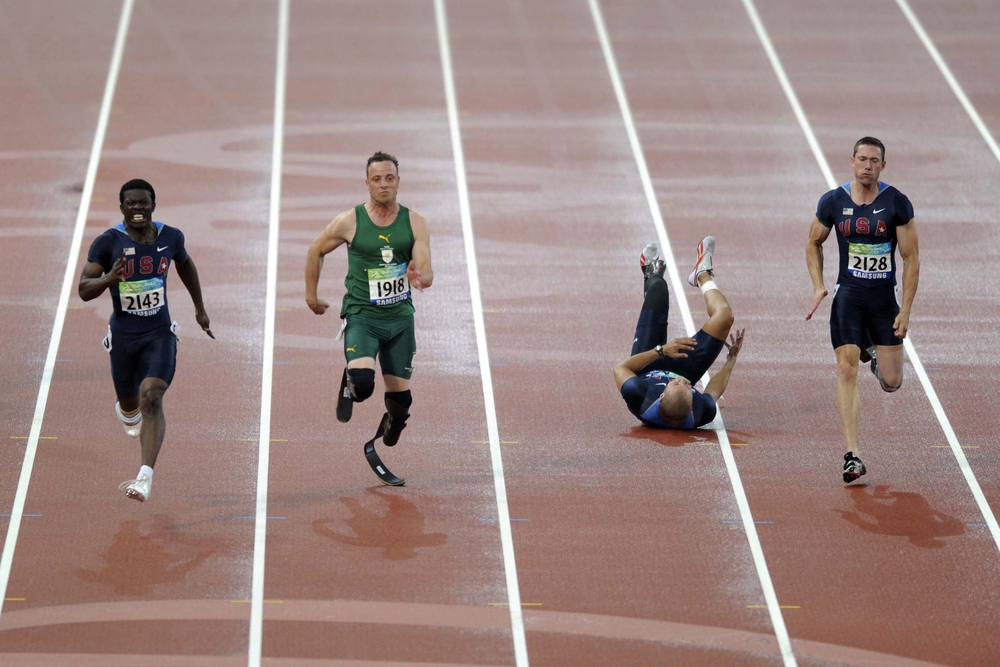Oscar Pistorius, the Paralympic runner convicted of murdering his girlfriend, has been released on parole after serving nearly nine years. Delve into the details of his parole and reactions to this development.
Oscar Pistorius, the renowned double-amputee athlete whose life turned tumultuous after being convicted of his girlfriend’s murder, has been granted parole after a significant period of incarceration. The Associated Press’s detailed coverage provides insights into his release and its implications.
Oscar Pistorius, aged 37, was released on parole after serving close to nine years of his 13-year and five-month sentence for the fatal shooting of Reeva Steenkamp in 2013. His parole approval was granted in November, adhering to South African law criteria.
The Department of Corrections maintained secrecy around Pistorius’ release, ensuring he avoided media attention that has trailed him since the tragic incident. He will reside under strict parole conditions until December 2029, when his sentence officially concludes.
Pistorius is subjected to various parole conditions, including limitations on leaving his home, alcohol prohibition, mandatory participation in anger management and women’s violence programs, community service, and regular meetings with parole officials.
He remains under constant departmental monitoring without any physical tracking device. Violation of parole conditions could result in imprisonment.
Steenkamp’s family did not oppose Pistorius’ parole, though June Steenkamp expressed skepticism about his rehabilitation and truthfulness regarding the killing.
The grant of parole to Pistorius raises questions about the effectiveness of rehabilitation and the balance between serving justice and allowing for reintegration into society. It invites contemplation on the impact of such high-profile cases on victims’ families and societal perceptions of crime and punishment.
The case of Oscar Pistorius signifies the intersection of celebrity, crime, and justice. It prompts introspection on legal procedures, rehabilitation efficacy, and the enduring trauma faced by victims’ families, serving as a reminder of the complexities within the justice system.
Oscar Pistorius’ release on parole marks a significant chapter in a tumultuous saga, highlighting the complexities of justice, rehabilitation, and societal response to high-profile cases. It stimulates crucial discussions on accountability, rehabilitation, and the legacy of tragic events.
The comprehensive insights and factual details presented in this article are derived from The Associated Press’s detailed coverage of Oscar Pistorius’ parole and the circumstances surrounding his release.



